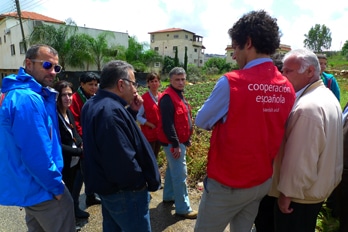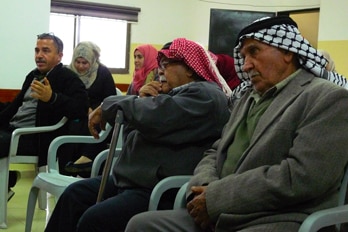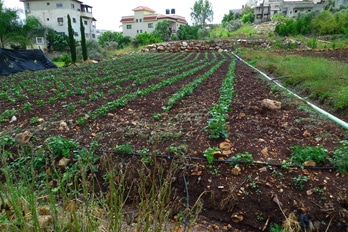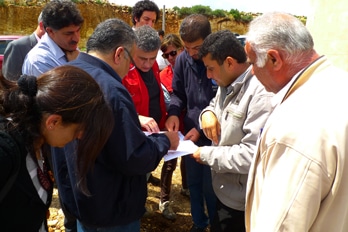
Currently, the FPSC is working for the rural development of the Palestinian territories, through the implementation of a quadrennial agreement funded by the AECID. This agreement is developed in consortium with the Agricultural Relief Committee (PARC), one of the organizations in the Palestinian Territories with more impact on the fields of rural development and the introduction of new technologies aimed to promote a sustainable agricultural development. This organization has a great implementation in the West Bank and Gaza and began to work with the FPSC in 1999.
 In the second year of implementation of the agreement, the FPSC together with the PARC, have carried out activities related to infrastructures, including land recovery for agricultural use (farming terraces construction) and construction of farm roads and irrigation lines in Qalquiliah and Tulkarem areas.
In the second year of implementation of the agreement, the FPSC together with the PARC, have carried out activities related to infrastructures, including land recovery for agricultural use (farming terraces construction) and construction of farm roads and irrigation lines in Qalquiliah and Tulkarem areas.
 In order to verify the good progress of the project, last 12th April, the General Coordinator of the Spanish Cooperation in the Palestinian Territories, Javier Goizueta Figar, staff of the Technical Cooperation Office and staff of the FPSC delegation visited the areas where the activities have been carried out: Azoun, Al Nabi Elias, Izbat Salman and Al Madour. The visit began with a meeting in the Azoun Town Hall with local community and beneficiaries representatives. Among them were women cooperatives that are direct beneficiaries of this agreement.
In order to verify the good progress of the project, last 12th April, the General Coordinator of the Spanish Cooperation in the Palestinian Territories, Javier Goizueta Figar, staff of the Technical Cooperation Office and staff of the FPSC delegation visited the areas where the activities have been carried out: Azoun, Al Nabi Elias, Izbat Salman and Al Madour. The visit began with a meeting in the Azoun Town Hall with local community and beneficiaries representatives. Among them were women cooperatives that are direct beneficiaries of this agreement.
 The delegation visited, also in Azoun, the location of the composting plant whose construction just has started and that will become one of the most remarkable activities of this agreement due to the huge demand that compost generates. They also visited the construction of farm roads that has finally been of 1,5 kilometers.
The delegation visited, also in Azoun, the location of the composting plant whose construction just has started and that will become one of the most remarkable activities of this agreement due to the huge demand that compost generates. They also visited the construction of farm roads that has finally been of 1,5 kilometers.
Furthermore, the entourage was able to verify the results of the land rehabilitation activities as well as the construction of farm terraces of 300 dumans conducted in Al Nabi Elias and the installation of 16 kilometers of irrigation lines in Izbat Salman and Al Madour.
These activities will provide a basis for undertaking marketing and selling activities of the agricultural production aimed to increase the income of the beneficiaries, estimated at 2,000 people.

